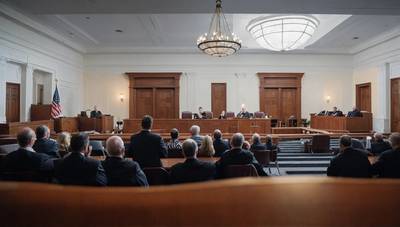US Supreme Court tests which courts can hear EPA Cases
Wednesday, the U.S. Supreme Court set rules for determining when cases challenging the actions of the U.S. Environmental Protection Agency relating to air pollution or greenhouse gas emissions are heard by regional appellate courts or a Washington appeals court that hears many regulatory cases. The ruling of 7-2 held that the U.S. Court of Appeals District of Columbia Circuit and not the 5th U.S. based in New Orleans, should hear the lawsuits challenging actions by the U.S. Environmental Protection Agency related to air pollution and greenhouse gas emissions. Circuit Court of Appeals is the appropriate court to hear a case brought by small oil refiners who are challenging the EPA’s refusal of waivers that exempt them from national mandates on biofuels. The 5th Circuit was not authorized to rule in 2023, that the EPA had illegally denied oil refineries waivers for a renewable fuels mandate that they blend ethanol or other biofuels with their fuel during the administration of President Joe Biden. Under the same test for determining venue as the Supreme Court announced in the refineries case, they ruled with 8-0 that a separate set of lawsuits brought by the Republican-led state of Oklahoma and Utah along with several energy companies such as PacifiCorp against the EPA’s “Good Neighbor” smog-control plan were incorrectly transferred to D.C. Circuit.
The two sets of cases were based on a provision in the Clean Air Act, a law against pollution that specifies the D.C. Circuit is the only venue to hear cases involving "nationally applicable rules and actions" of the EPA, but cases relating to local agency actions are left with regional federal appeals court.
Clarence Thomas, a conservative justice who wrote for the majority of the Supreme Court in the case of the refineries, laid out a test to determine how to interpret this provision and the appropriate venue for lawsuits that challenge EPA actions.
Thomas stated that even though the law presumes to route cases involving local agency actions through a regional court of appeals, they must still be heard in Washington D.C. Circuit "if a justification for EPA's actions is primarily based on a nationwide scope."
Thomas stated that this justification is required to provide a "core reason" for the EPA’s actions, just as it did for the six refineries whose requests for exemptions from the biofuel mandate were denied based upon an interpretation of Clean Air Act which the agency applied regardless of refineries’ geographic location.
The ruling reversed a 5th Circuit judgment in favor of refineries, on the merits. It concluded that EPA actions were not national but local or regional.
In a joint press release, Growth Energy and Renewable Fuels Association said that allowing 12 different circuit court to adjudicate on SREs (small refining exemptions) could lead to a fragmented and inconsistent law body. This would cause chaos and confusion on the market.
In a dissenting view, Conservative Justice Neil Gorsuch said that the majority's test was "both wrong and likely to make simple venue questions unnecessarily complicated and expensive to solve."
The court reversed the decision of the Denver-based Tenth U.S. Circuit Court. Circuit Court of Appeals ruled that Oklahoma and Utah's case should be transferred to D.C. Circuit.
This case involved a rule issued by the EPA in March 2023 to target the gases that form ozone (a component of smog) from power plants and industrial sources in 23 states upwind whose plans did not meet the "Good Neighbors" provision in the Clean Air Act.
Oklahoma and Utah were two of 21 states whose plans for air quality were rejected by EPA as a result of this policy. Oklahoma and Utah were among the states that filed numerous lawsuits to contest the decision at the 10th U.S. Circuit Court of Appeals in Denver. Circuit Court of Appeals.
The 10th Circuit ruled that the case was a D.C. Thomas wrote that because the case involved a national policy the 10th Circuit should hear it.
Last year, the Supreme Court blocked the "Good Neighbor Rule" of the Biden era from being enforced as lower courts continued to litigate. The Trump administration has stated that it intends to repeal the rule.
(source: Reuters)




